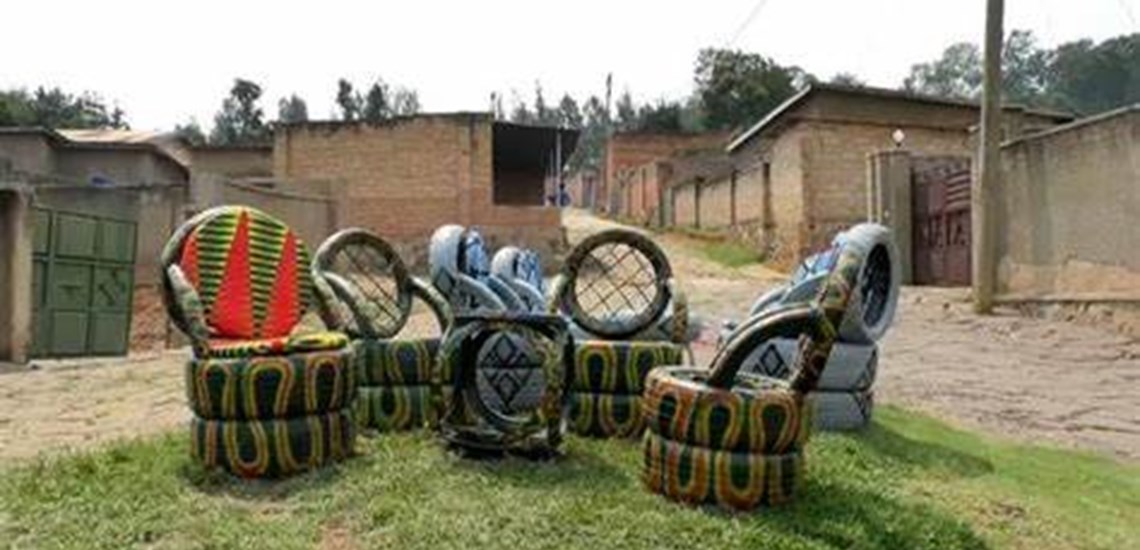Rwandan project sees tyre furniture employ staff and develop a market for locally crafted products.
Rwandan Tyre Recycling Project
Furniture from tyres is not a new project, and whilst tyre furniture in Europe is sold to the fashionistas and the liberal purchaser hoping to do some good by their purchase, In many African countries the craft is a ladder out of poverty, and a step onto the recycling ladder.
One of the latest to come to our attention is in Rwanda.
At a time when ownership of vehicles is rising in Rwanda, the Kamana Workshop in Kigali has found a practical way of recycling the increasing numbers of tyres.
Jean de Dieu Kamana is the founder and owner of the workshop:
“I thought about starting this after people used to come to my place and use the tyres as seats, then I realised I could make chairs out of the tyres. I started doing research to realise that it was possible. So I came up with my own styles,” he says.
Kamana‘s workshop has been running for almost 10 years and now employs 12 people.
It can make around 15 lounge sets in a week, consisting of 5 seats and a table, which sell for between 150 and 200 US Dollars each, while a pair of shoes sells for between 1 and 6 US Dollars.
The workshop links up with individuals who go around spotting old tyres in and around the capital Kigali and pays a fee of 5 US Dollars a tyre.
Their work prevents the tyres from piling up in garages, clogging up rivers and drainage systems or ending up in landfill, as well as being burned and letting up harmful pollutants.
Rwanda’s Environment Management Agency (REMA) data shows that the city’s daily volume of municipal solid waste is between 1,800 and 2,000 tonnes, with only 10 to 12% recycled.
With tyres often overlooked as being part of the problem REMA has welcomed Kamana’s business for helping tackle the issue:
“We do appreciate that ongoing practice and we keep motivating people to look for the best use of so-called wastes into the environment. So the transformation of tyres into other objects or other materials that can serve the community really needs to be encouraged from an environmental protection perspective,” says Jacques Nsengiyumva from Environmental Compliance and Enforcement for REMA.
Rwanda’s government has set a target to increase the rate of waste recycling of non-organic solid waste by 40% by 2029/ 30.




















